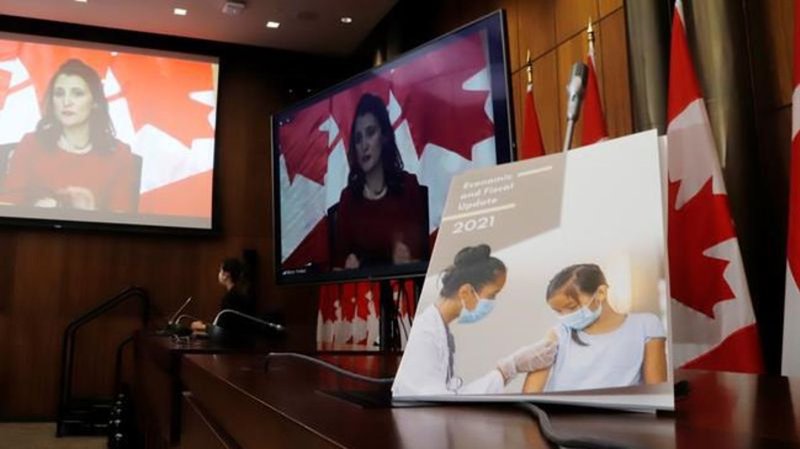
Freeland asks provinces to use more rapid tests, says millions more tests are coming
OTTAWA — Finance Minister Chrystia Freeland pleaded with provinces to use the COVID-19 rapid tests they’ve already been sent as she promised Ottawa will spend another $1.7 billion to buy millions more of them in the next few months.
The dark clouds of COVID-19 hung grimly over Tuesday’s fiscal update — a point hammered home by the fact that Freeland did not deliver it in the House of Commons chamber in person.
Instead, she released the update virtually, after two of her staff members tested positive for the virus using rapid tests earlier in the day.
As case numbers rise, many Canadians are clamouring for easier access to rapid tests, and Freeland said the supply is there for the provinces to use.
